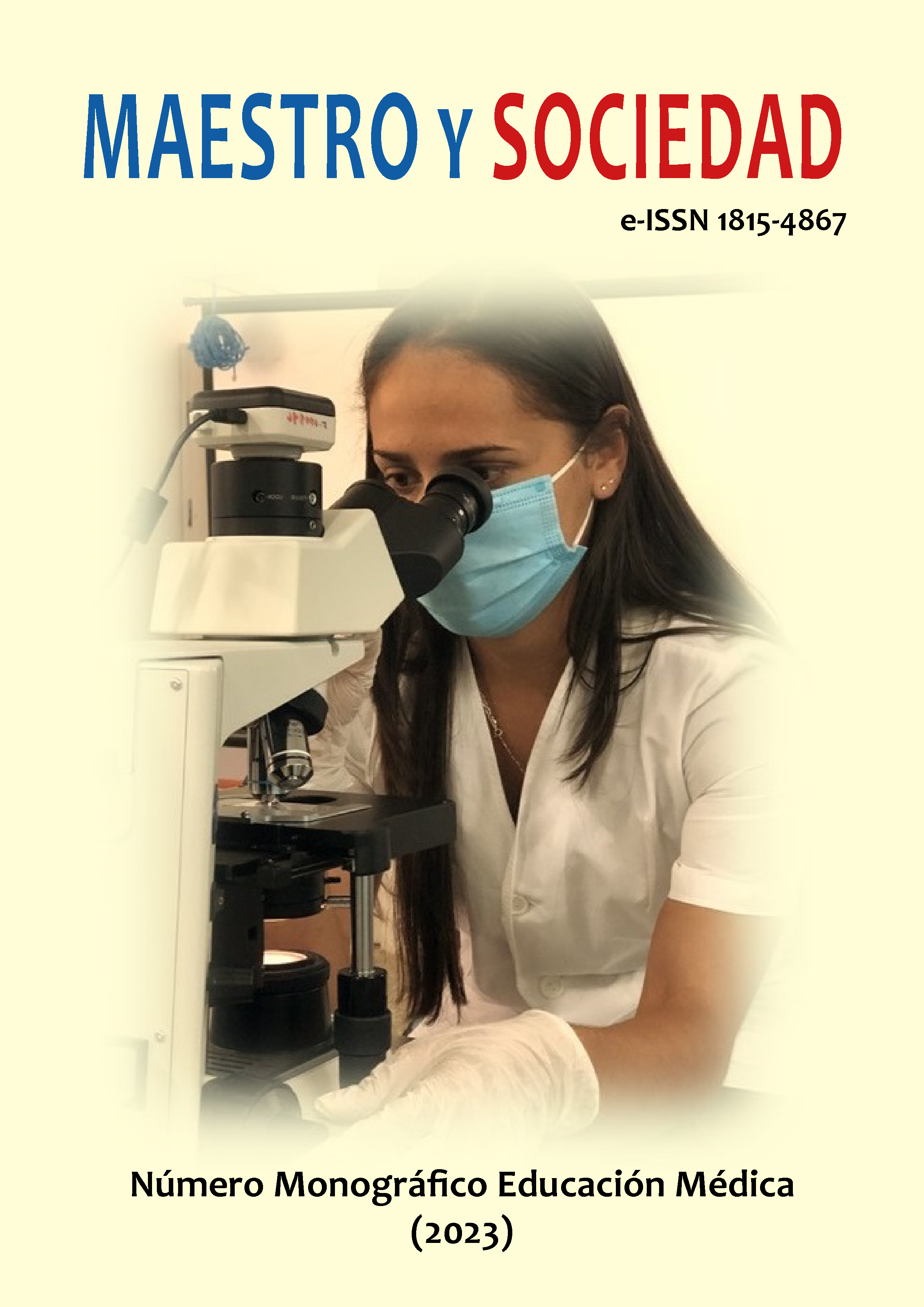Hypnosis: alternative proposal for the treatment of academic stress
Hypnosis: alternative proposal for the treatment of academic stress
Keywords:
students, academic stress, hypnotherapy, effectiveness, personalityAbstract
Introduction: Hypnotic techniques are relatively easy to apply, harmless compared to other medical and psychological procedures, which is why they are considered as adjuncts to other types of scientific, clinical or therapeutic efforts. Objective: To evaluate the effectiveness of hypnotherapy as an alternative for the treatment of academic stress in Law students of the Higher Education Institution ¨Hermanos Marañón¨. Materials and Methods: A quasi-experimental study was carried out and for this, a sample of 25 students between 18-21 years old affected by academic stress was selected. Results: The most outstanding personality characteristics in students undergoing hypnotherapy were: tendency to aggressiveness (80%), insecurity and dependency (76% both) and need for affection (72%); the emotional symptom anxiety was the most frequent and was manifested by 86% of the patients. Discussion: In the human being, according to Guillén, (2018), a certain level of stress is necessary and even beneficial for learning. In this way, brain circuits that control attention or memory are activated, avoiding boredom. However, for learning to be optimal, the stress level cannot be excessive, because this can cause anxiety or exhaustion. Conclusions: The use of hypnotherapy as an alternative technique for the treatment of academic stress in Law students was effective, since personality qualities were modified that favored the control of emotional states, symptoms resulting from stress and strengthening of its structure. personological.
References
Alejos R. (2017). Estrés académico en estudiantes de secundaria en una Institución Educativa Privada de San Juan de Lurigancho. Universidad Inca Garcilazo de la Vega.
Boubaire Bell, R. (2011). La Hipnosis. Propuesta como una alternativa en el tratamiento al estrés. [Tesis de maestría. Instituto Superior de Ciencias Médica].
Calviño, M. (2019). Descubriendo la Psicología. (Tomo II). Editorial Academia.
Chust Hernández, P. (2019). Estrés Académico en Estudiantes Universitarios de Nuevo Ingreso de la Universidad Católica de Valencia. https://riucv.ucv.es/handle/20.500.12466/1145.
Cobián Artimes, Y. E. (2019). Terapia floral en el tratamiento del estrés académico en estudiantes de la carrera de medicina. [Tesis de Máster. Universidad de Ciencias Médicas].
Cobián Mena, A. (1997). Yo sí creo en la Hipnosis. Editorial Oriente.
Depraect N., E. Z., Decuir M., G. S., Castro M., L. C. y Salazar J., R. Q. (2017). Estrés académico en estudiantes universitarios: medidas preventivas. Revista de la Alta Tecnología y la Sociedad, 9(4). http://sistemanodalsinaloa.gob.mx/archivoscomprobatorios/_11_articulosrevistasindexadas/22159.pdf
Oliveti, S. (2010) Estrés académico en estudiantes que cursan primer año del ámbito universitario. http://imgbiblio.vaneduc.edu.ar/fulltext/files/TC104100.pd
Martínez, E., & Díaz, D. (2007). Una aproximación psicosocial al estrés escolar. Educación y Educadores.
Martínez-Lorca, M., Aguado-Romo, R. y Martínez-Lorca, A. (2018). Respaldo y Apoyo a la Hipnosis Clínica como Herramienta Terapéutica. Respuesta a la Carta de Héctor González-Ordi Clínica y Salud. http://search.ebscohost.com/login.aspx?direct=true&db=a9h&AN=134891379&lang=es&site=ehost-live
Pérez Almoza, G. y Bestard Bizet, R. S. (2017). Metamodelo meditativo en el tratamiento de la ansiedad en trastornos neuróticos. REEA, 1(1), 283-94.
Sapolsky, R. (2013). ¿Por qué las cebras no tienen úlcera?: La guía del estrés. Alianza Editorial.
Toribio-Ferrer, C. y Franco-Bárcenas, S. (2016). Estrés Académico: El Enemigo Silencioso del Estudiante. Salud y Administración, 3(7). http://www.unsis.edu.mx/revista/doc/vol3num7/A2_Estres_acad.pdf
Downloads
Published
How to Cite
Issue
Section
License
Copyright (c) 2023 Raúl Boubaire Bell, Yenifer Encarnación Cobián Artimes, Odalis Querts Méndez

This work is licensed under a Creative Commons Attribution-NonCommercial-NoDerivatives 4.0 International License.
This journal provides immediate open access to its content, based on the principle that offering the public free access to research helps a greater global exchange of knowledge. Each author is responsible for the content of each of their articles.



























 Universidad de Oriente
Universidad de Oriente 